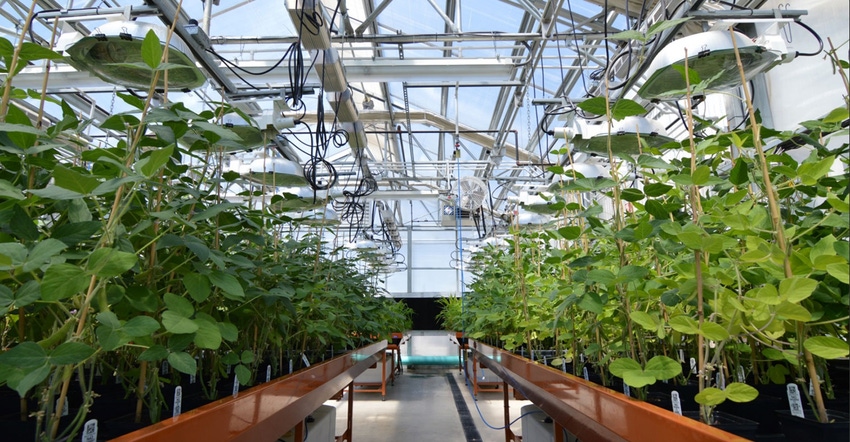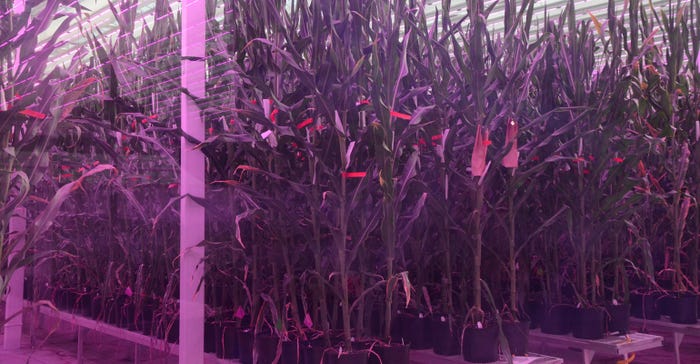
In 2017, Syngenta announced it would invest $400 million in its Syngenta Seeds LLC business with the focus of making NK Seeds the No. 2 commercial seed provider in the market. Where has that money gone to work? In many places.
“We’ve invested in our Trait Conversion Accelerator facility for corn in Nampa, Idaho, and a Trait Introgression facility for soybeans in Clinton, Ill.,” says Eric Boeck, head of marketing for Syngenta Seeds.
Along with facility investment, the company has put money into acquiring researchers, including 100 research and development people globally.
During a Syngenta media briefing at Commodity Classic in early March, Boeck explained that the Nampa facility has ramped up considerably since opening in 2019. “The output at that facility has increased tenfold since opening,” he said. “This allows us to optimize trait introgression, which we can do now in as little as seven weeks.”
Related: Syngenta cuts ribbon for Trait Conversion Accelerator facility
Moving new traits into hybrids and varieties can speed top-level germplasm to market faster. Boeck said this faster introgression has been an advantage for the company with traits like Enlist E3 and XtendFlex, which are popular.

Boeck said the seed investment, which includes a major increase in field talent, has brought more local trial evaluations, combined with a national focus on research and development. Factors such as standability, disease resistance and stalk strength are part of the hybrid evaluations.
“We use a stalk crusher that provides real-time measurement from the combine to evaluate the strength of cornstalks,” Boeck said, adding that the work has accelerated the process of testing corn hybrids by two years.
New to market
If a company is investing that kind of capital in developing new products, farmers are going to eventually see the results. In 2021, Syngenta launched Field Forged hybrids, and by 2023, the company will have 64 products in the series.
Eric Miller, NK Soybean product manager, shared during Commodity Classic that the Field Forged class is designed to work across a range of geographies. To be classified under the series, corn and soybean products have to demonstrate “a consistent yield, strong stalks and roots, and excellent disease tolerance, and be broadly adapted to the grower’s environment,” he said.
For the 2023 crop season, 29 NK corn hybrids, 28 NK soybean varieties and seven Enogen hybrids will be offered.
Miller said Syngenta will be first to market, and only to market, with exclusive proprietary genetics with Enlist E3 and XtendFlex traits.”
Learn more at syngenta-us.com.
Golden Harvest soybeans
Also on hand for the briefing, Stephanie Porter, Golden Harvest soybean product manager, shared news of that brand’s Gold Series adding eight varieties for 2023. That raises the number of Gold Series soybean varieties to 19, which offer key traits including Enlist E3 and XtendFlex.
“Our line includes 71 varieties that work from North Dakota … down to Kansas, Kentucky and even Texas,” she said. “And there are no more participation trophies. We’ve earned our way to the top with all 19 Gold Series varieties with elite genetics and robust agronomics.”
Learn more at goldenharvestseeds.com.
About the Author(s)
You May Also Like




